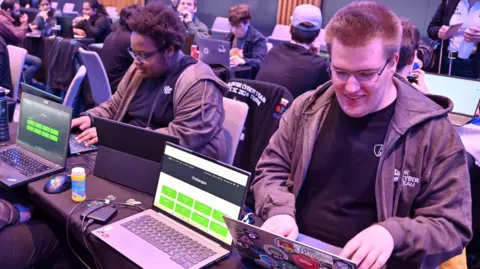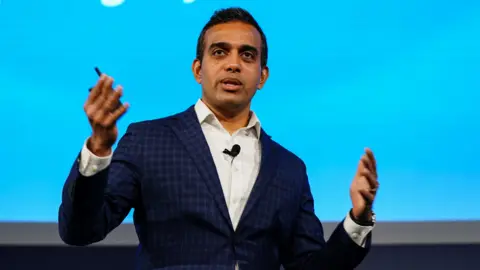The Struggle for Entry-Level Tech Jobs in the Age of AI
Recent computer science graduates are facing unprecedented challenges in securing their first roles, as companies increasingly turn to AI tools for basic coding tasks that were once the domain of junior staff. Eddie Hart, a 2024 graduate in computer science and cybersecurity from Newcastle University, shares his frustrating experience: "I thought it would be a little easier," but even 'junior' roles often demand two or more years of professional experience, which he calls unrealistic and discouraging.
 Eddie Hart says coding firms seem reluctant to hire recent graduates
Eddie Hart says coding firms seem reluctant to hire recent graduates
The Impact of AI on Job Openings
Tools like ChatGPT are being blamed for a significant decline in tech job openings, particularly for younger developers. A report by the UK's National Foundation for Education Research shows a 50% decline in tech job adverts between 2019/20 and 2024/25, with entry-level roles hit the hardest. The report cites the "anticipated impact of artificial intelligence" as a key factor.
Despite this, software developers are widely adopting AI code tools, though trust remains low. Research from Stack Overflow indicates that almost half use AI tools daily, but only one-third trust their output. Prashanth Chandrasekar, CEO of Stack Overflow, notes, "It's a tricky time to graduate," with developers choosing to stay in their current roles despite dissatisfaction, leading to a tighter job market for newcomers.
 "It's a tricky time to graduate," says Prashanth Chandrasekar
"It's a tricky time to graduate," says Prashanth Chandrasekar
Automated Application Processes Add to the Stress
The job search itself has become more arduous with the integration of AI. Eddie Hart encountered an application with eight stages, including 20 exam-style questions, taking hours to complete. Friends were asked to record video answers reviewed solely by AI, making the process feel impersonal. "It just feels like you don't get that respect of at least being rejected by a human," he lamented.
Colin, another 2024 graduate who preferred anonymity, spent nearly a year in a recruitment process for a large company only to be rejected. He notes that even smaller firms use AI to screen applications, forcing candidates to structure their CVs to be "AI friendly," yet interviewers often haven't read them.
Long-Term Concerns and a Glimmer of Hope
Paul Dix, CTO of InfluxData, warns that if companies stop hiring junior developers, the pipeline for senior roles could dry up, harming the industry long-term. However, there are positive notes: Rajiv Ramaswami, CEO of Nutanix, points out that new graduates may have more experience with AI tools, and he finds the talent market to be the best in years.
 The pipeline of coders could dry up, says Paul Dix
The pipeline of coders could dry up, says Paul Dix
Stack Overflow's research shows that while 64% of developers see AI as a job threat, this fear has decreased slightly from the previous year, suggesting growing awareness of AI's limitations. Historically, tech disruptions have led to more jobs as new challenges emerge, but this may not help current graduates in time.
Eddie Hart eventually secured a role as a security engineer through a human-centered process, while Colin has left tech altogether, considering a police career. This highlights the varied outcomes and the urgent need for the industry to adapt its hiring practices.





Comments
Join Our Community
Sign up to share your thoughts, engage with others, and become part of our growing community.
No comments yet
Be the first to share your thoughts and start the conversation!